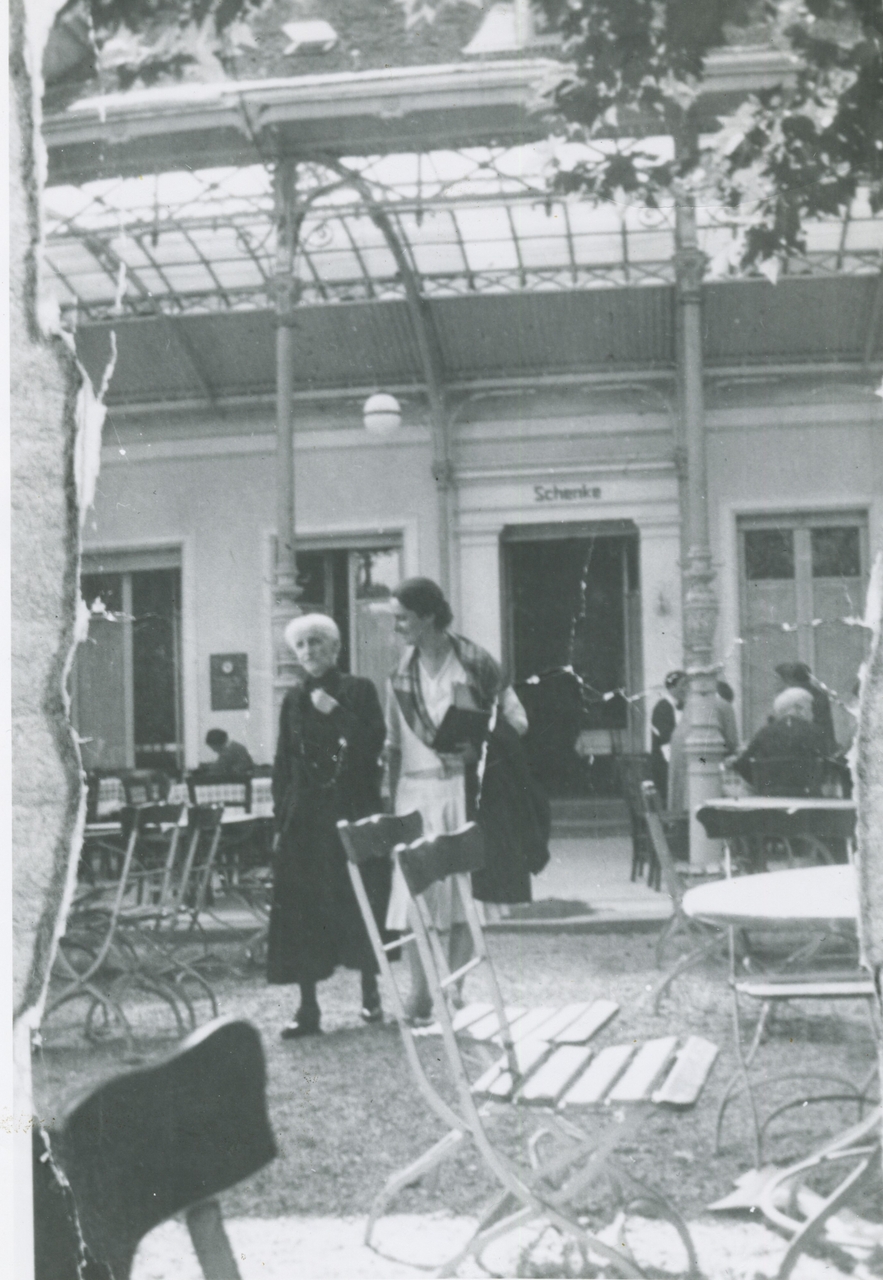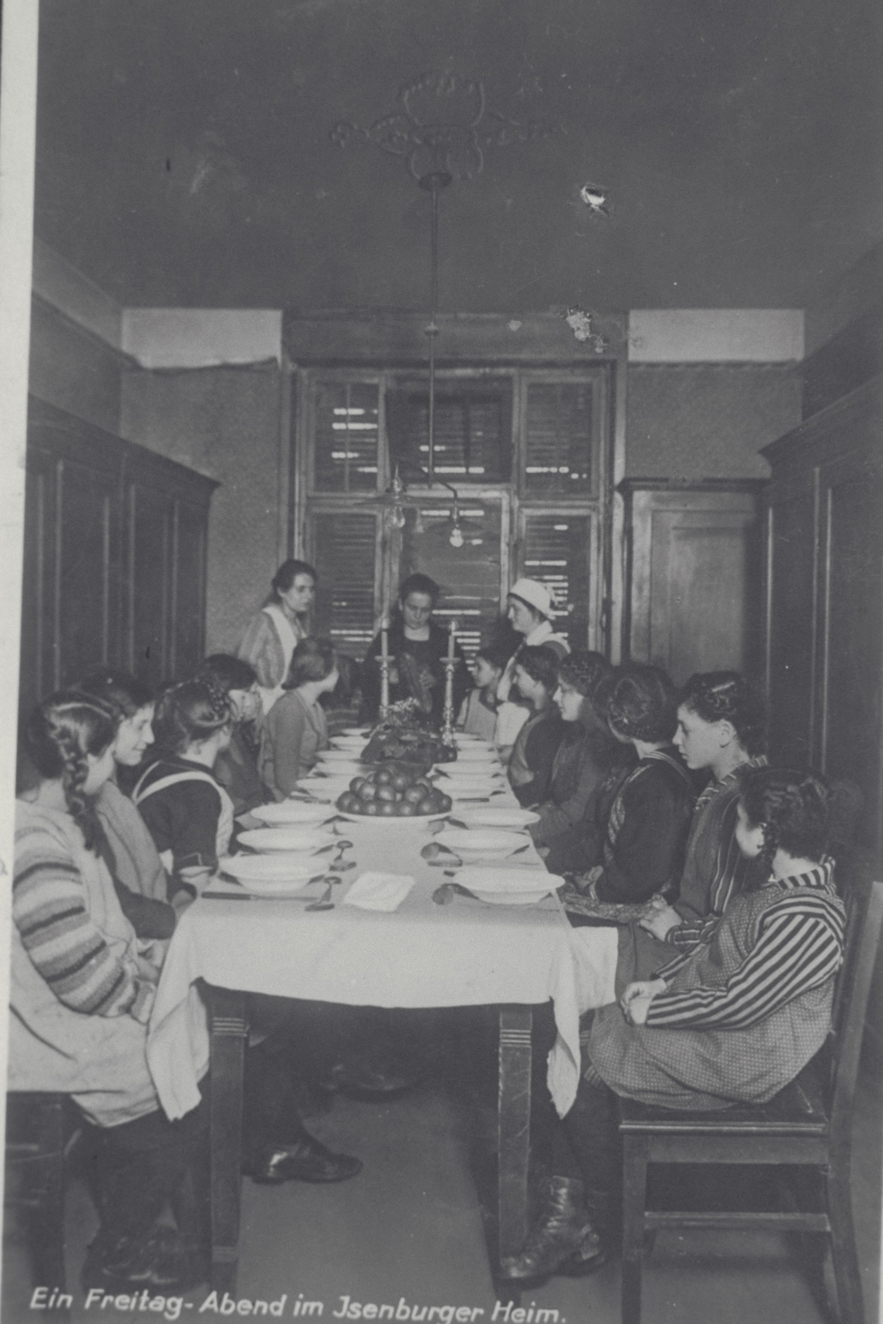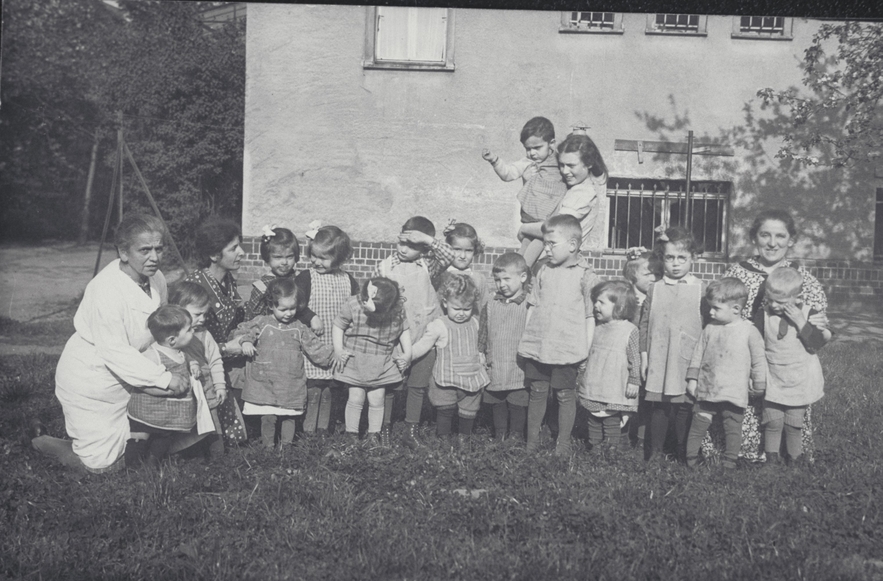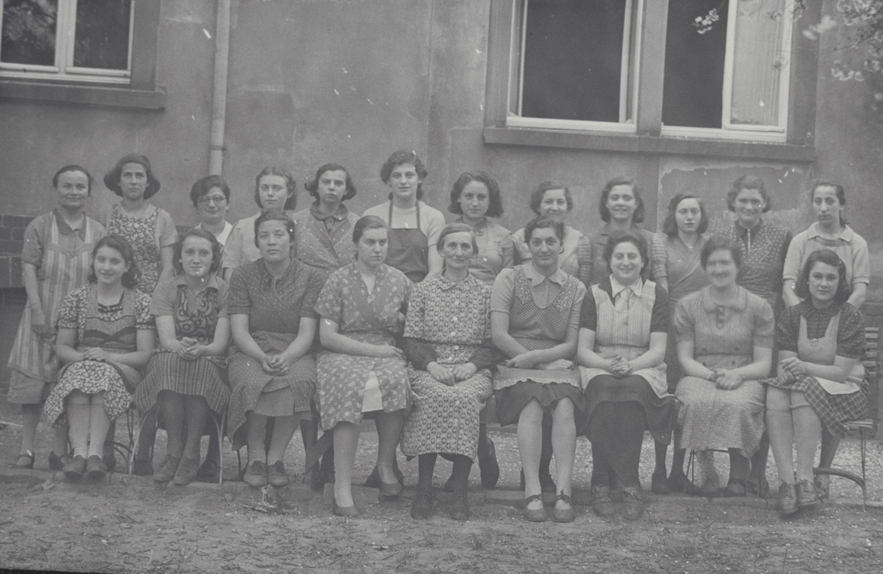Der Jüdische Frauenbund
The Jüdischer Frauenbund (JFB; League of Jewish Women) was founded in 1904 by Bertha Pappenheim and Sidonie Werner. The JFB aimed to unite the emancipatory and social efforts of different Jewish women’s associations. It incorporated feminist ideas in the practice of Judaism and was the biggest charitable Jewish organization in Germany for many years. The JFB cooperated with the Bund Deutscher Frauenvereine (BDF; 'Federation of German Women's Associations') and supported the emancipatory movement in Germany more broadly. About 20% of all Jewish women in Germany were members of the JFB. Most of them came from the middle-class and liberal spectrum.

Feminism and the JFB
The JFB was founded to raise women’s awareness of feminist and political issues, even though the organization defined itself as politically neutral. The founder believed that feminism was a possibility to strengthen the Jewish religion. Women, as the primary caregivers, should learn more about Judaism to transmit this knowledge and the religious values to their children. This was a novelty in a patriarchal system that foresaw religious education for men only.
Hence, the JFB was progressive in advertising for emancipation and equal rights for men and women. The JFB saw women’s education as a means to sustain themselves independent of their husbands. However, the field of female labor was seen as different than that from men. Firstly, women were primarily responsible for the household and the private sphere. Secondly, the female work domain was social work, due to the inherently social and caring characteristics of women. The JFB was traditional by emphasizing the role and primary instinct of women as mothers and caregivers. Motherhood was regarded as a central element to the female being and a way to achieve female self-fulfillment.
The JFB did not see women and men as equals. Rather, the two genders had their distinct roles in society based on the intrinsic traits of each gender. The organization desired women to fulfill their roles and do their duty to the country to become respectable and valuable members of society. Thus, the JFB was not militantly feminist or tried to overturn existing gender roles but urged women to adapt to the circumstances to gain respect from their male counterparts

Education
As mentioned in the previous section, the need for the education of women was a primary concern of the JFB. Firstly, women were to raise their children and provide them with an understanding of Judaism. Secondly, education was a way for women to become self-sufficient. Without job training, women were not able to support themselves independently from men. This dependency and lack of opportunities led some Jewish women, particularly in Eastern Europe, to prostitute themselves. The JFB aimed to counter this development and combat ‘white slavery’ – the forced prostitution and trafficking of women, mainly from Eastern Europe. Thirdly, the JFB hoped that, through large-scale female employment, women might gain more respect because men might recognize the importance of women to society. Lastly, education provided women with psychological independence and the opportunity to make decisions independent from their partners. To support these efforts, the JFB set up an employment agency for women. Furthermore, teaching centers were established to train women in domestic science. Nonetheless, women were still dependent on men in the sense that motherhood was regarded as an ideal. Additionally, the household was seen as exclusively female domain, and the hardships of this double burden of being the primary caretaker at home and having to work were largely ignored.

Social Work
Social work was seen as a distinctly female domain. The feminism as advertised by the JFB could also be called ‘social feminism.’ The JFB founded orphanages and schools for Jewish girls, such as the Mädchenwohnheim in Neu-Isenburg while also providing accommodations and support centers for unmarried mothers or pregnant women. With these places, the JFB was able to set up spaces for women and girls, particularly from precarious backgrounds, to be educated.

Bertha Pappenheim, the long-time leader of the JFB, saw social work as a calling, not a profession. Hence, the engagement of the JFB was largely based on the charitable work of its middle-class members. This was one reason why working-class women, with much less free time available, were not active in the JFB.
After 1933
When, in 1933, the National-Socialist gained power, feminist movements in Germany largely came to an end. This applied to the JFB in particular, since, with rising antisemitism, identification with Judaism became more important than with feminism. Furthermore, the scope of responsibilities of the JFB shifted after 1933: rather than supporting Eastern European Jewish women, the focus now laid on aiding German Jews in need, helping them with their emigration, and trying to continue Jewish life in Germany. Over time, this more and more turned into a struggle for survival. After 1935, Jewish organizations were excluded from welfare support by the German government which hampered the activities of the JFB. After the Kristallnacht in 1938, the JFB was dissolved. It was only reinstituted in 1953 by Lilli Marx and Jeanette Wolff.